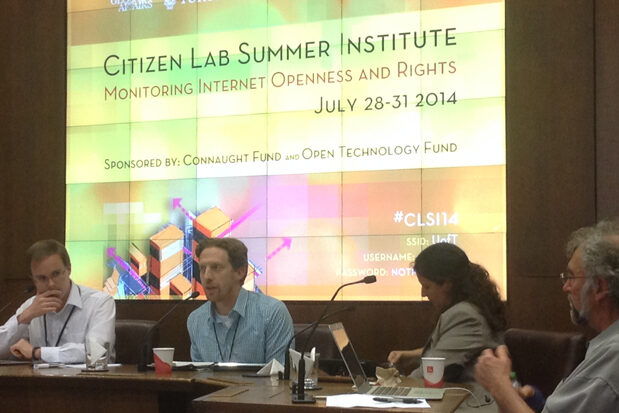Author: Ben Zevenbergen
News
- Articles from Policy & Internet
- Books
- Call for Papers
- Child Safety
- Collective Action
- Conferences
- Democracy
- Development
- Economics
- Education
- Environment
- Ethics
- Governance & Security
- Health
- Interviews
- Mapping
- Methods
- Policy
- Politics & Government
- Publications
- Social Data Science
- Submissions Closed
- Tools
- Video
- Wellbeing
-

Design ethics for gender-based violence and safety technologies
—
in WellbeingSharing instructive primers for developers interested in creating technologies for those affected by gender-based violence.
-

Ethics in Networked Systems Research: ACM SigComm Workshop Report
—
in EthicsExperimentation and research on the Internet require ethical scrutiny in order to give useful feedback…
-

Monitoring Internet openness and rights: report from the Citizen Lab Summer Institute 2014
Informing the global discussions on information control research and practice in the fields of censorship,…
-

Ethical privacy guidelines for mobile connectivity measurements
—
Measuring the mobile Internet can expose information about an individual’s location, contact details, and communications…